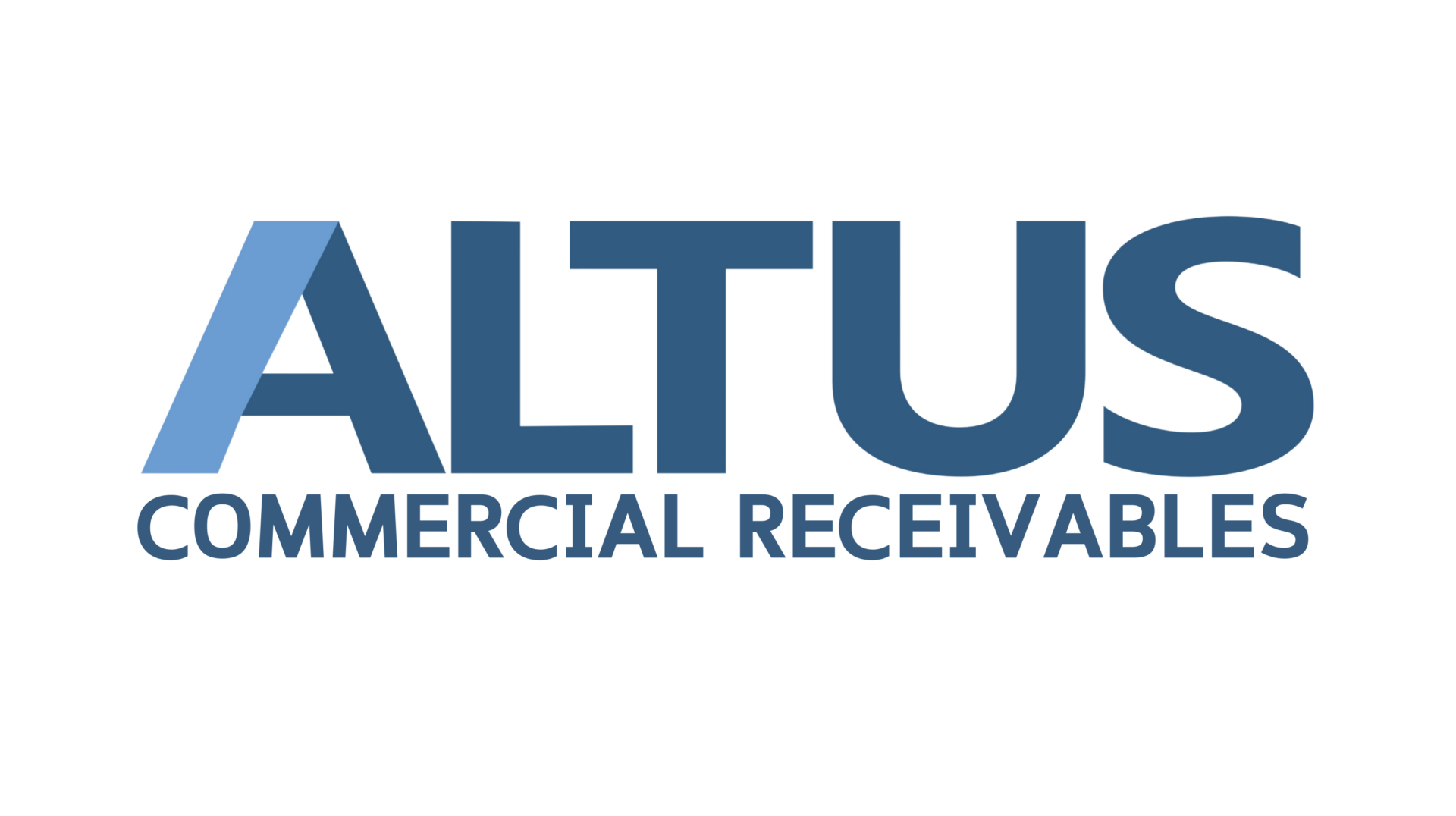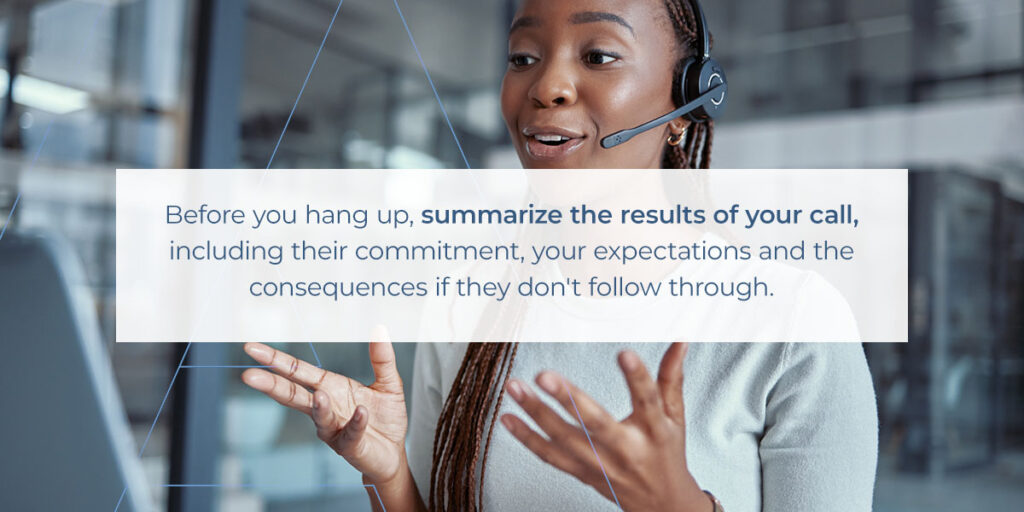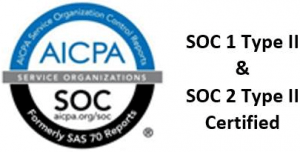
For almost every business, collection efforts are necessary at some point to recover outstanding debts. In times of economic downturn, your customers may be struggling to pay their debts.
Making debt collection calls is often the last task that staff members want to tackle, especially when other important business matters are at hand. Collection calls can also be uncomfortable, and you may not feel confident taking on the task yourself — a common reason businesses outsource collections. Having some successful debt collection techniques prepared can support your employees during these calls.
However, when you aren’t receiving payments, it may be time to take steps toward collection or hiring a collection agency. Fortunately, if debt collection is one of your job responsibilities, you can become more confident in your abilities with some phone call debt collection tips. If you’re a small business, view specific collection tips here.
How to Handle Collection Calls
When your business has to collect debts from customers, you need to know how to navigate this situation. Though it can be uncomfortable to make debt collection calls, doing so may be necessary to keep your business operating.
Try some of these B2B debt collection tips:
1. Prepare Before the Call
It’s essential to prepare before placing a collection call. You want to gather all the relevant information about the customer and the debt. Familiarize yourself with the customer’s payment record with your company and any other payment history you may be able to access. Determine whether this customer usually pays on time and this past-due debt is uncharacteristic or whether this customer has a pattern of making late payments.
Next, be sure you have all the information regarding the debt on hand, including:
- The amount owed.
- The payment’s original due date.
- The services or products purchased.
- The terms of sale.
- Additional open invoices, even those not yet due.
Having all this information beforehand can ensure you are prepared and can navigate the call successfully. Double-check that the debt has truly not been paid before you make a call. Calling about a debt that has already been paid could alienate a customer.
When you all have essential information ready, you can also avoid further payment delays. Customers might ask questions hoping to derail you, searching for this response — “I’m not sure. Let me get back to you.” By having all information prepared to answer potential questions, you can keep customers present and move forward with payment.
2. Know How to Rebute Excuses
Take some time to list common excuses customers have regarding their debts. Write down these excuses and then jot down an effective rebuttal. You can write these excuses on your computer or cards, and group them by category so they are easy to find. Some common excuses you may hear include:
- “I don’t have the invoice”: In response to this excuse, you can offer to send the customer a copy of the invoice and ask them to mail the check after they receive the invoice.
- “I’m struggling financially right now”: In response to this excuse, you can offer empathy for the customer’s financial difficulties and the option to set up a payment plan with a partial payment to be paid today.
- “I already sent a check in the mail”: In response to this excuse, you can ask for the check number, date, and amount to ensure the customer posted the check correctly if it was indeed sent.
- “This invoice or statement is incorrect”: In response to this excuse, assure your client that your financial teams have already reviewed and reconciled documents and statements to check for potential inaccuracies. Further, offer to explain any confusion or knowledge gaps your customer might have about bills and invoices.
If a customer attempts to cut the call short with an excuse, you can counter the excuse with a thoughtful rebuttal and return to your purpose of collecting the debt.
3. Use a Professional but Pleasant Tone
The tone you use to conduct your collection calls can significantly influence the success of your debt collection efforts. Before you make your calls, you may want to record yourself making a mock collection call opening. Listen to the recording and make adjustments as necessary. Doing so can build your confidence and ensure you come across the way you want on the phone.
To ensure your tone is professional and pleasant, smile while you speak, lower your pitch, pause more frequently, and speak a bit slower to be sure you’re enunciating clearly. If you want to drink, eat, or chew gum, do so between your phone calls.
4. Focus Your Attention Solely on the Client
You can increase professionalism by ensuring your full attention is on the customer throughout the call. It can be tempting to check your email or review your to-do list, especially when the customer cannot see you, but these tasks can cause you to miss vital details.
Throughout the call, use various verbal cues to keep yourself focused and show the customer you are listening. Making sounds can show you understand and hear their explanations and concerns. You can also repeat information back to them to assure them and yourself that you understand their points. Customers can feel more supported during calls and know you are engaged with this strategy.
5. Integrate Empathy Into Your Conversations
When you want a client to open up and collaborate with you, empathy and understanding can be powerful tools. Clients who feel attacked and blamed are more likely to get defensive and start offering more excuses as to why they haven’t or can’t pay. Instead, trying to listen to their perspective and understand their situation can build trust and even highlight additional problems you can resolve to prevent missed payments from reoccurring in the future.
For example, a customer might say they have trouble understanding invoices and billing statements, causing them to miss payments or underpay. Instead of reprimanding them, you can take the opportunity to educate them so they can better proceed with future payments.
6. Offer Options
Some customers are genuinely dealing with financial difficulties and may not be able to make a large lump sum payment. This is why you may want to offer a few payment options. For example, if your customer is struggling to pay off the debt, you may want to allow them to make multiple smaller payments over time.
The payment plan you agree upon should work for both you and the customer. While the goal is to get the debt paid back as soon as possible, offering options can be the difference between a debt getting paid and keeping a customer or going unpaid and losing a customer.
7. Get a Commitment for Payment
The main goal of a collection call is to get a commitment to payment from your customer. If you can’t convince the customer to pay in full, your next best option is to get a commitment to a partial payment or another call with a payment date. If you and the customer will be touching base again, be sure to mention a specific date for this call.
Emphasize the urgency and importance of the matter and the client following through on their payment commitment. Before you hang up, summarize the results of your call, including their commitment, your expectations and the consequences if they don’t follow through.
8. Take Notes
When you’re on the phone call with your customer, take notes about what you discuss. Write down the customer’s comments to combat a potential debt dispute in the future. Companies with tracking software can input notes into the system. Keep this file up-to-date by adding new details as they come up.
9. Stay in Contact With the Customer
Some customers may not be able to pay immediately, so it’s best to stay in contact. The customer may be capable of paying in the future, and by continuing to communicate with them, you may be more likely to receive payment. By staying in contact, you may also be able to ensure that you retain a customer.
In your follow-ups, you should reiterate the promises and commitments clients made in your collection calls. Include information about additional scheduled calls, partial payment plans or updated payment due dates. When customers receive frequent reminders, they are more likely to follow through, especially if it is something they verbally agreed to. You can stay in contact through emails, physical mail and phone calls.
10. Determine When to Receive Professional Assistance
Even after putting your best efforts and strategies forward, some customers and clients still refuse to pay their debts. It can be tempting to keep calling and following up, but this approach can be time- and resource-consuming. Instead, learn when you should partner with a professional debt collection agency.
Debt collection agencies are experts in tracking down and working with customers to retrieve your money. They know the best methods and strategies to implement with various types of clients and scenarios to collect debt efficiently. If you don’t know what to say when making collection calls, agencies can offer advice and experience.
Whether you need help tracking down a particular client or dispersing the volume of debts to retrieve, a debt collection agency can offer many services and skills to businesses interacting with debtors.
Streamline Debt Collection With Altus
Altus is a global commercial collections firm, and we can help your business gain more control over your credit-to-cash cycle. With a large network of certified professionals and the most advanced technology, we can streamline first- and third-party collections and ensure the highest levels of compliance and security.
Our powerful collection automation system, ARM STRONG™, is the center of our advanced technology. With ARM STRONG, your company can streamline and automate the debt collections process, which can help boost cash flow performance and reduce costs at every level.
If you need assistance with collections, credit intelligence, international debt recovery, and legal forwarding, turn to Altus. Contact us today to get more collections tips and tricks or to implement our collection automation system.







